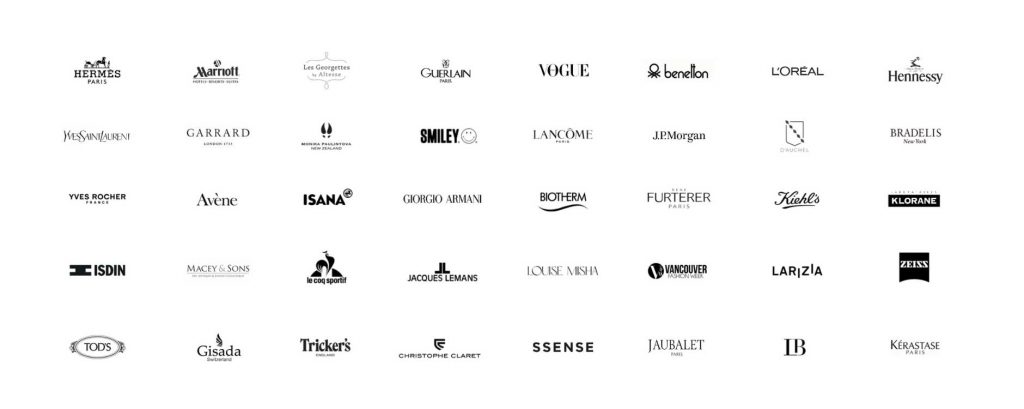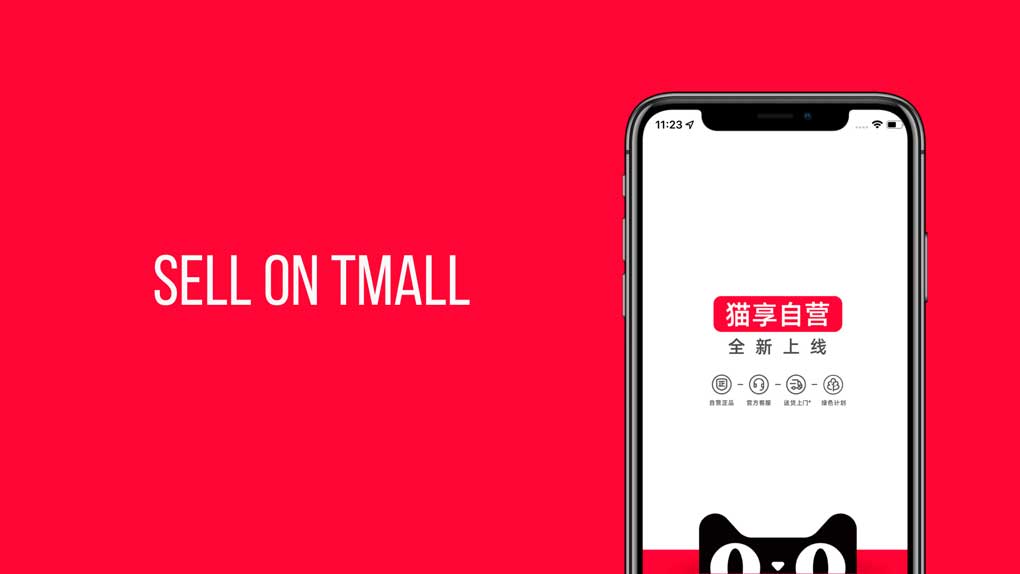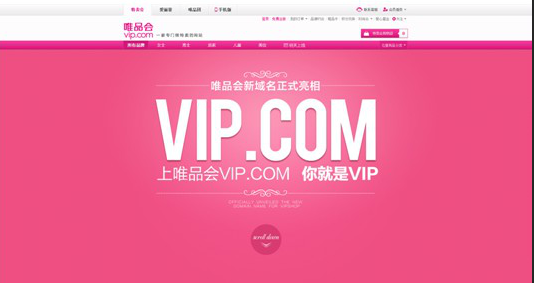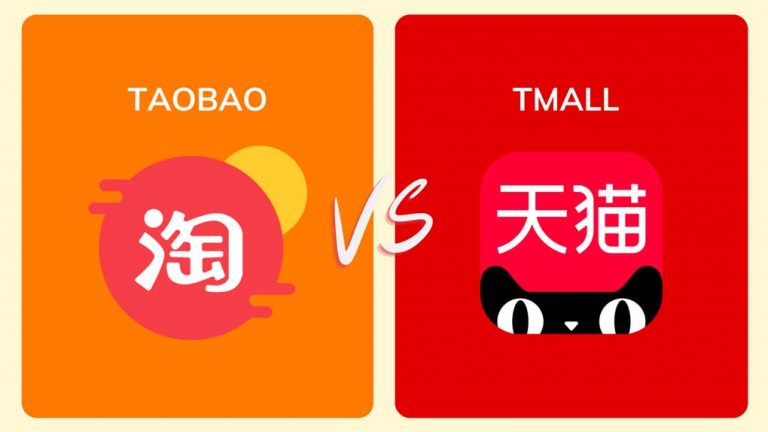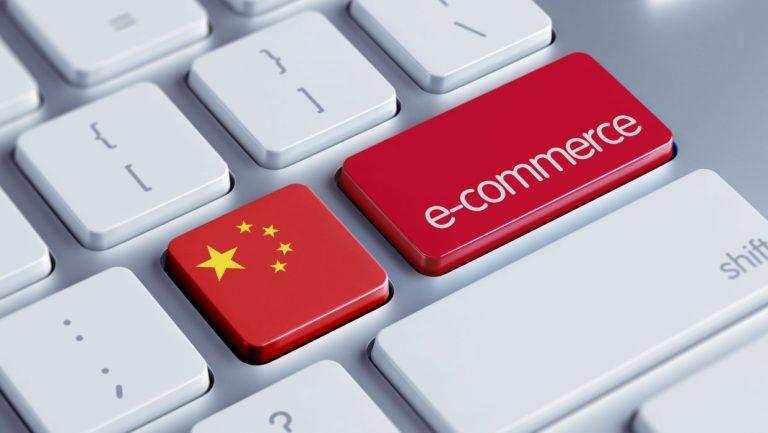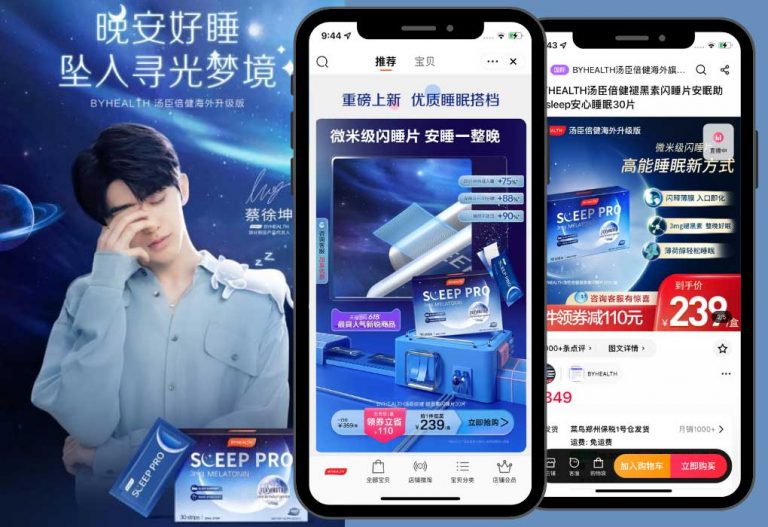Breaking into China’s lucrative e-commerce market has never been easier, thanks to Tmall – the leading online marketplace in the country. As a foreign brand looking to expand its reach and tap into a massive consumer base, opening a Tmall store can set your business on the path to success.
In this blog post, we will discuss everything you need to know about entering the Chinese market with your own Tmall store – from legal compliance and documentation requirements to effective marketing strategies that drive sales.
Need a cost effective TP (Tmall Partner) to sell in China?
We are an Official Tmall Partner e-commerce Agency. Our Services: E-Commerce, Search Engine Optimization, Advertising, Weibo, WeChat, WeChat Store & PR.
Tmall – The Leading E-commerce Platform In China
With over 50% market share of China’s B2C e-commerce business, Tmall stands as the largest business-to-consumer retail platform in Asia, boasting a user base of more than 800 million consumers in China market.
Operating under Alibaba Group, Tmall has been at the forefront of China’s astounding e-commerce growth and continues to solidify its position as an unmatched online retail powerhouse. Since 2014, it also operates Tmall Global, Tmall’s cross-border e-commerce sub-platform for foreign companies wanting to tap into China’s e-commerce market without a psychical presence in China and a Chinese business license.
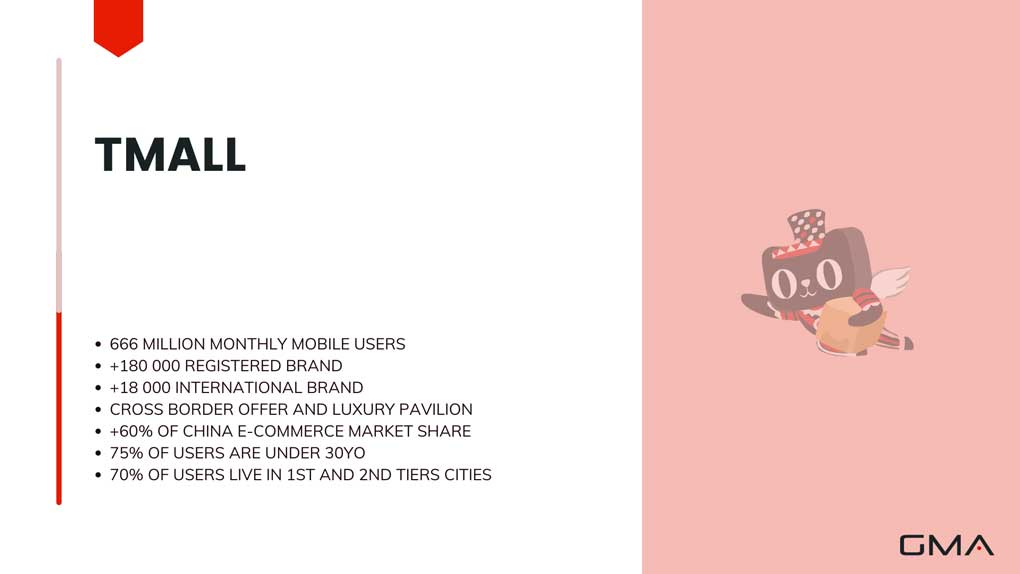
The sheer size and potential offered by this massive market are evident when considering that China accounts for more than 50% of all online sales worldwide.
For foreign brands looking to tap into lucrative opportunities across various product categories and consumer segments in this thriving ecosystem, having a presence on Tmall is indispensable.
Who are the consumers shopping on Tmall?
Tmall, Alibaba’s B2C e-commerce platform, serves a diverse demographic that primarily consists of growing middle-class, young, and digitally-savvy consumers.
In terms of shopping preferences, Tmall’s users show a keen interest in high-quality and branded goods. They often perceive a direct correlation between price and quality, thus are willing to pay more for branded and imported products.
Categories like fashion, electronics, cosmetics, and household goods are particularly popular on the platform.
As for purchasing behavior, Tmall’s users are increasingly embracing trends such as online-to-offline (O2O) shopping and live-streaming commerce. They often rely on product reviews, ratings, and Key Opinion Leaders’ (KOLs) recommendations to guide their purchasing decisions.
In addition, the platform’s major shopping festivals, such as Singles Day (11.11) and its mid-year sale (6.18), trigger massive buying sprees, demonstrating a consumer culture that’s receptive to sales promotions.
What are the differences between Tmall and Tmall Global?
Tmall Global is designed specifically for foreign brands looking to enter China’s booming online retail space. This platform enables international merchants to sell imported products through cross-border e-commerce without needing a localized Chinese business or physical presence in the country.
With its B2C model, Tmall Global focuses on providing Chinese consumers with safe and trusted alternatives amidst concerns of counterfeit items commonly found elsewhere online.
Despite these variances in operation scope, both platforms remain committed to serving China’s massive consumer base, by offering unique opportunities for brand growth and exposure.
Benefits And Opportunities For Foreign Brands On Tmall
Selling on Tmall, one of the largest business-to-consumer (B2C) online retail marketplaces in China, offers multiple benefits to retailers:
- Access to a Large Consumer Base: With hundreds of millions of active users, Tmall provides businesses access to a vast customer base in China and beyond. This allows companies, especially foreign ones, to tap into the lucrative Chinese market without necessarily establishing a physical presence.
- Brand Recognition: Tmall is known for hosting reputable local and international brands, which means that having a Tmall or Tmall Global store can enhance your brand’s credibility and visibility among Chinese consumers.
- Robust Logistics and Payment Infrastructure: Tmall is part of the Alibaba ecosystem, which includes Alibaba’s logistics network (Cainiao) and payment system (Alipay). This integration ensures a seamless and trustworthy shopping experience for consumers and a reliable, efficient process for sellers.
- Marketing Tools: Tmall offers various promotional and marketing tools, including options for search engine optimization, digital marketing campaigns, and participation in shopping festivals like the famous Singles Day (11.11), to help businesses increase visibility and boost sales.
- Customer Insights: Tmall provides businesses with consumer behavior insights, including shopping patterns and preferences, enabling them to tailor their marketing strategies and product offerings effectively.
- Brand Storefront: Businesses on Tmall can customize their online storefronts, giving them the opportunity to differentiate their brand and engage customers with a unique shopping experience.
- Customer Service Support: Tmall has policies in place that protect both the sellers and buyers, ensuring a smooth transaction process. The platform also provides customer service support to assist with inquiries and resolve disputes.
However, selling on Tmall also comes with challenges such as stiff competition, costs related to platform fees and commissions, and the need to adapt to local consumer preferences and regulations. Therefore, it’s crucial for businesses to thoroughly consider their strategy when entering this marketplace.
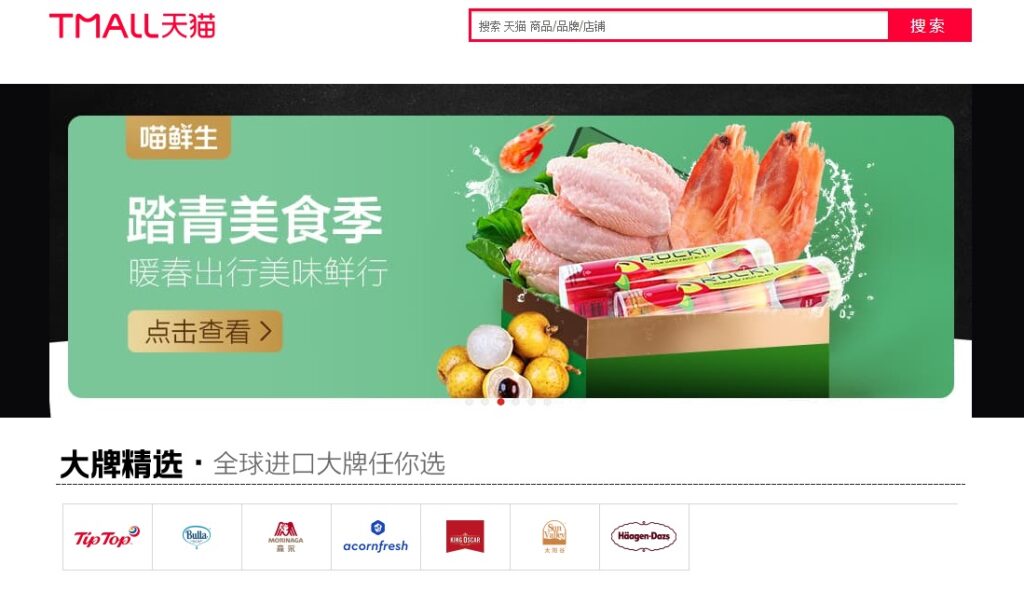
Three Types Of Tmall Stores
There are three types of Tmall stores: flagship, specialty, and franchise. Each store model has its own pros and cons, so it’s important to evaluate which one is best suited for your brand.
Tmall Flagship Store
As a foreign brand looking to sell products in mainland China, opening a Tmall Flagship Store can be the most advanced model for reaching Chinese consumers.
To qualify for this store type, your products must be genuine and come with a certificate of origin. They also need to pass through Chinese international customs.
The benefits of operating Tmall Flagship Stores include increased brand recognition, full autonomy over storefront design, dedicated customer service support, and access to tailored marketing campaigns such as Super Brand Day promotions.
Tmall Specialty Store
These stores are designed for brands focused on one product category and offer an opportunity to showcase your products more prominently to Chinese consumers.
One example of a successful Specialty store is Olay’s official skincare store, which has increased its sales revenue significantly since opening on Tmall.
To set up your own Tmall Specialty Store, you will need to meet certain requirements and pay applicable service and deposit fees. It’s essential that you conduct market research beforehand so that you can determine if this type of store aligns with your business goals in China.
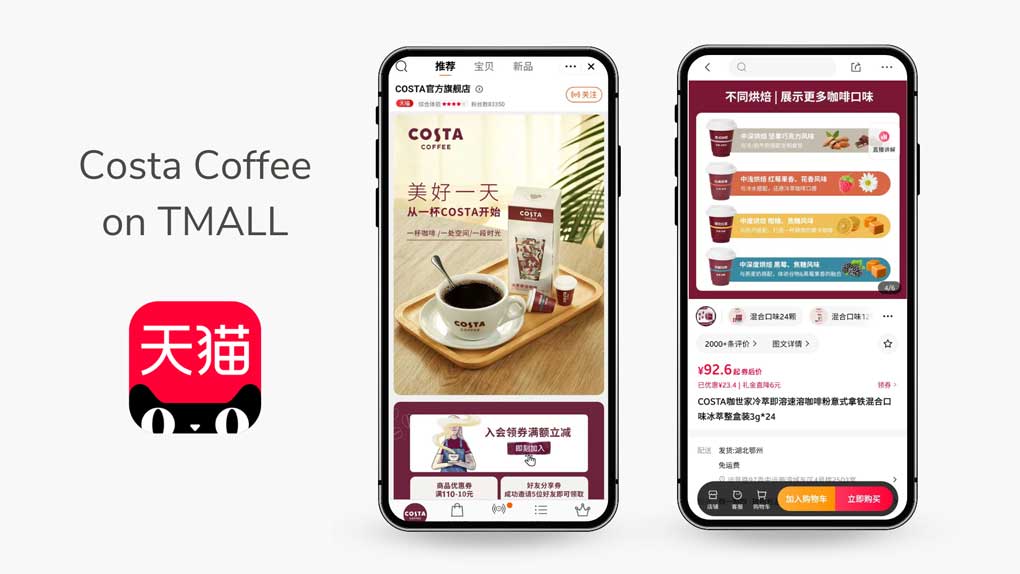
Tmall Franchise Store
This type of store operates on a franchise model, meaning that the brand enters into a franchise agreement with an authorized reseller to manage and operate its storefront.
Unlike Tmall Authorized stores that require merchants to have a license to sell branded goods, Tmall Franchise stores allow brands to expand their product distribution without having to set up their own online retail infrastructure.
For example, international brands such as Nike and Adidas have successfully opened Tmall Franchise stores in China through partnerships with local retailers.
What are the pros and cons of those store types?
Below is an overview of the advantages and disadvantages of each store type to help you make an informed decision.
| Store Model | Pros | Cons |
|---|---|---|
| Tmall Flagship Store | – Greater brand exposure and recognition – Ability to sell a wide range of products – Exclusive access to Tmall marketing tools and resources – Dedicated customer support | – Higher setup costs and fees – Requires substantial investment in marketing and promotion – More stringent eligibility requirements |
| Tmall Specialty Store | – Lower setup costs and fees compared to Flagship Store – Ability to focus on a specific product category or niche – Easier registration and approval process | – Less brand exposure compared to Flagship Store – Limited product offerings – Less access to Tmall marketing resources and tools |
| Tmall Franchise Store | -Opportunity to leverage the existing brand reputation and customer base – Lower setup costs compared to Flagship Store – Access to Tmall marketing resources and tools | – Requires partnering with a local Chinese franchisee – Potential for limited control over store operations and brand image – Sharing of revenues with a franchisee |
The Flagship Store model is ideal for brands looking for maximum control over their online presence and marketing efforts, while the Specialty Store model may be more suitable for smaller or niche businesses focused on specific product categories.
Ultimately, your choice will depend on factors such as your market entry strategy, target audience, and budgetary constraints.

How to Open a Tmall Store?
To register and open a Tmall Store, foreign brands need to create an Alibaba Group account, submit an application to Tmall, and complete the registration process – read on for a step-by-step guide.
Check the Eligibility Criteria And Requirements For Foreign Brands On Tmall
It is important to note that there are strict eligibility criteria and requirements that must be met. Here are some of the key factors to consider before applying:
- Overseas Registration: To register on Tmall Global, a company must be registered overseas. If you want to open a store on Tmall, you need a Chinese business license.
- Authenticity Verification: Foreign brands must prepare documents that prove their brand’s authenticity, such as trademark registration certificates and business registration documents.
- Genuine Products: Products sold on Tmall must be genuine and come with a certificate of origin to ensure quality control.
- Trade Qualifications: Retail and trade qualifications overseas are necessary to open a Tmall store as a foreign brand.
- Documentation Preparation: Prepare all the necessary documentation including your certificates of incorporation/business registration, trademarks registration certificates, and your certificate of origin in advance – this will save you time and hassle during the application process.
By understanding these eligibility criteria and requirements beforehand, you can better prepare yourself for the application process to open a successful Tmall store as a foreign brand.
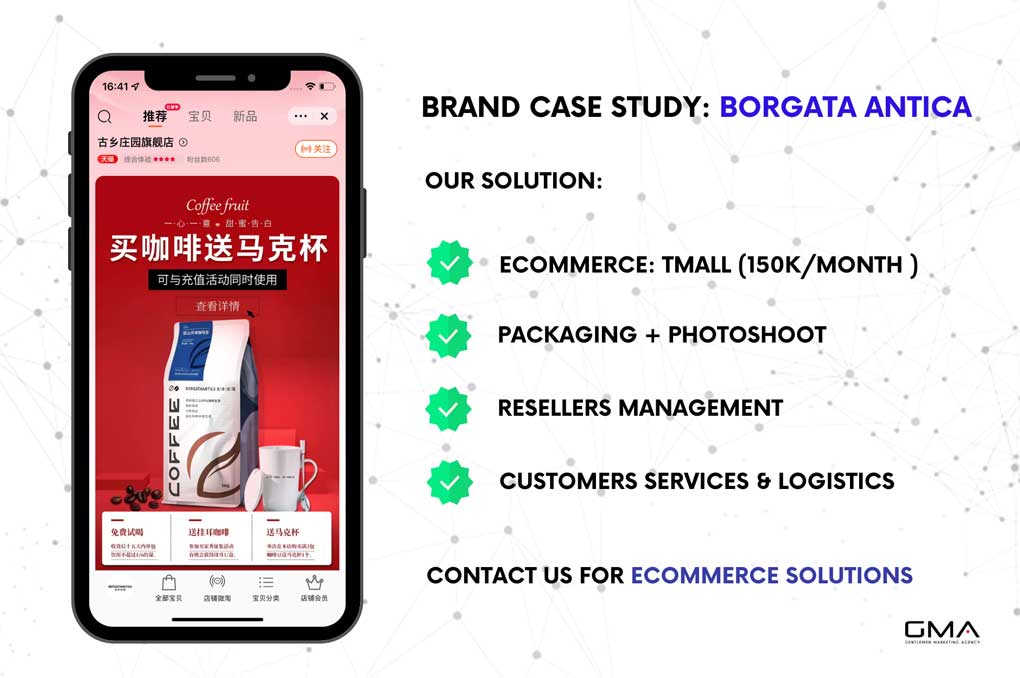
Create An Alibaba Group Account
The first step in the process is creating an Alibaba Group account. This will enable you to access Tmall’s merchant registration page and submit your application for approval.
It is important to note that some of the required documentation may vary depending on your country of origin and type of business. For instance, if you are a sole proprietorship or partnership instead of a corporation, there may be different requirements for providing proof of ownership. Tmall China requires a Chinese retail business license and a Chinese bank account.
Additionally, if you have multiple brands or subsidiaries under one parent company, you’ll need to ensure that each brand has separate authorization documents from their respective owners.
After approval of your application, merchants will need to pay a security deposit and annual fee as a registered brand on Tmall.com.
Complete The Registration Process And Obtaining Approval
After submitting the application to open a Tmall store, the next step is to complete the registration and obtain approval. Here are the steps involved:
- Receive confirmation of your application: Once your application is received, you will receive an email confirmation from Tmall.
- Submit required documents: You may be required to submit additional documentation such as business licenses and certificates of authenticity.
- Pay the security deposit and annual fee: As a registered brand on Tmall, you’ll need to pay a security deposit and an annual fee.
- Review and sign agreements: Review and sign various agreements including the Tmall Service Agreement, Intellectual Property Protection Agreement, and Store Promotion Plan Agreement.
- Choose store operators or agents in China: If you’re not based in China, it’s recommended that you select operators or agents in China to manage shipping, logistics, customer service, etc.
- Wait for approval: Once all requirements are met, Tmall will review your application before granting approval for your Tmall authorized store.
Keep in mind that the registration process can take up to several months due to paperwork requirements and communication with Chinese authorities.
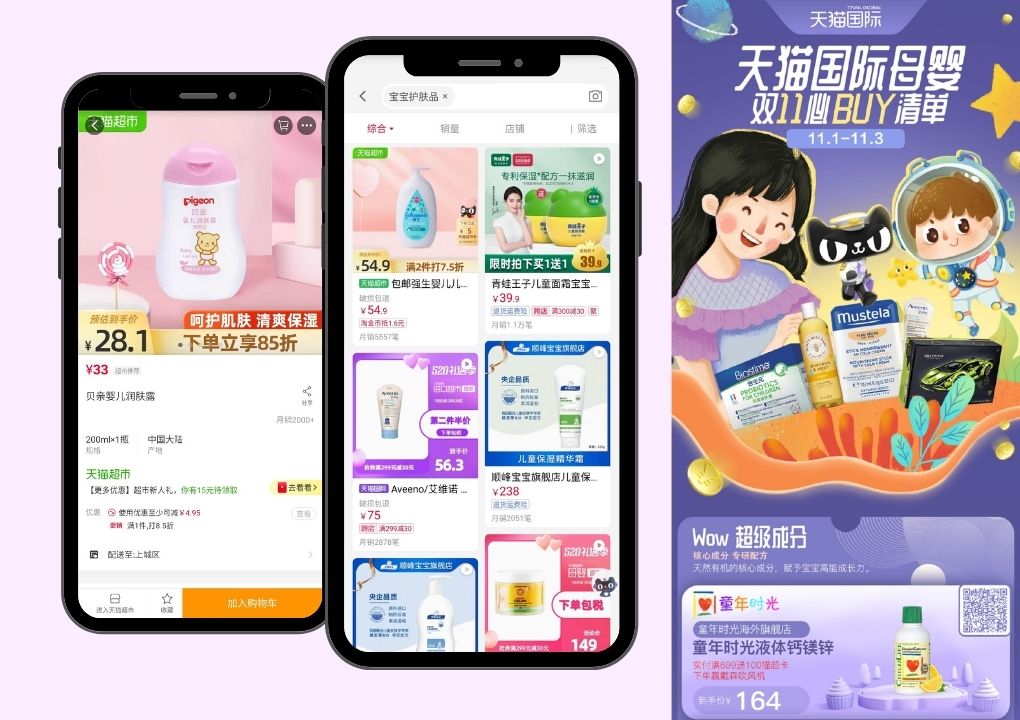
Store Setup And Operations
In this section, we’ll cover everything you need to know about designing and customizing your Tmall store, managing product listings, and implementing effective marketing strategies – all crucial factors to ensuring success on the platform.
How to Design and Customize Your Store to Sell on Tmall?
Now that you have successfully registered and opened your Tmall store, it’s time to customize and design it to match your brand identity. Your Tmall store should look professional, polished, and inviting.
You can choose from various design templates provided by the platform or create a custom one yourself.
You also need to ensure that your product listings are descriptive, informative, and engaging. Use keywords in your titles and descriptions to improve search engine rankings.
Offer different variations of products such as color options or bundle deals to attract more customers. Implementing these tactics can help increase click-through rates resulting in improved sales performance.

Implement Effective Marketing And Promotional Strategies
To start, optimizing your store’s search engine ranking through SEO is crucial, as it can help increase visibility and drive traffic to your page.
Public relations (PR) can also be a valuable tool in building trust with potential customers by highlighting positive stories about your brand or products. One great example of an effective PR strategy is partnering with popular influencers or KOLs (key opinion leaders) who already have a large following in China.
Overall, it’s important to approach marketing for Tmall with a strategic mindset that takes into account the unique challenges and opportunities of selling in China’s vast e-commerce market.
Build Brand Awareness to Sell Products on Tmall to Domestic Consumers
Implementing effective marketing and promotional strategies is crucial to building brand awareness and driving sales on Tmall. From leveraging Tmall’s marketing tools and campaigns to collaborating with influencers and KOLs, there are many tactics that can help you reach your target audience in China.
Leverage Tmall’s Marketing Tools And Campaigns
It is important to understand the different marketing tools and campaigns available on Tmall to build brand awareness and drive sales. One such tool is the use of brand zone ads that allow you to showcase your products more prominently.
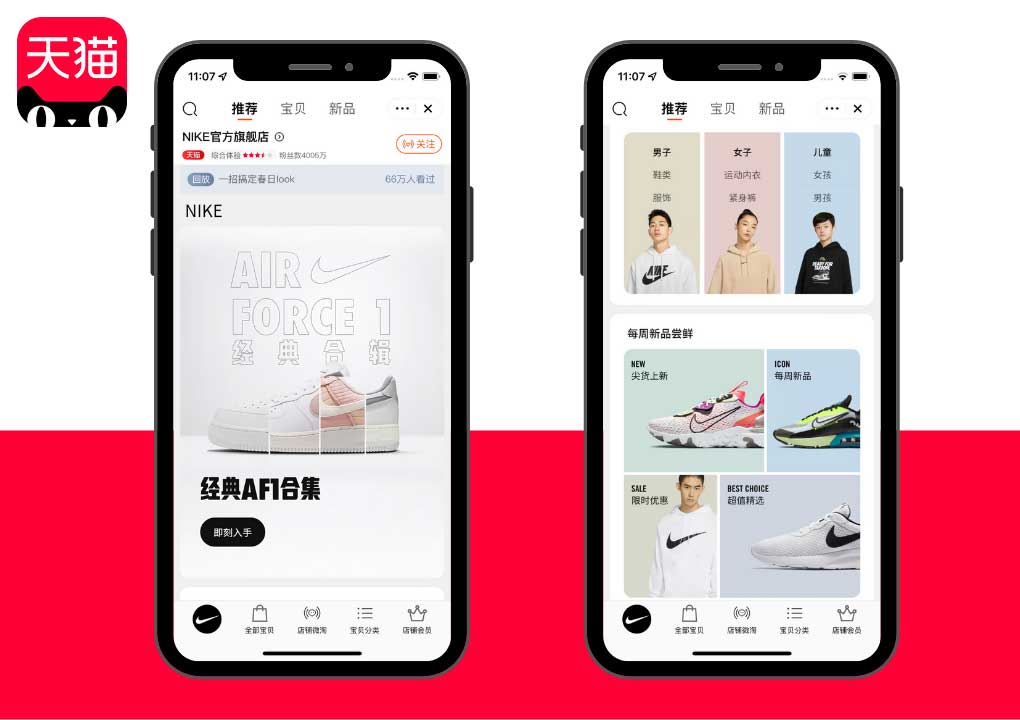
Additionally, leveraging local festivals and milestones can enhance the customer journey and increase engagement with your store.
Another critical aspect of marketing on Tmall is implementing targeted advertising strategies using data analytics. The platform offers powerful targeting options based on demographics, interests, behaviors, and even search history.
By combining these options with effective messaging and visuals, foreign brands can significantly improve their customer reach and visibility in China’s competitive e-commerce market.
Promote Your Tmall Store On Social Media Platforms And Chinese Forums
With fierce competition in the Chinese market, leveraging popular platforms such as WeChat and Weibo can help you reach a wider audience of potential customers. Creating engaging content tailored to your target audience can also be an effective way to attract new customers and drive traffic to your Tmall store.
Additionally, collaborating with influencers and KOLs who have a strong presence on these platforms can further boost brand awareness and trust among consumers.
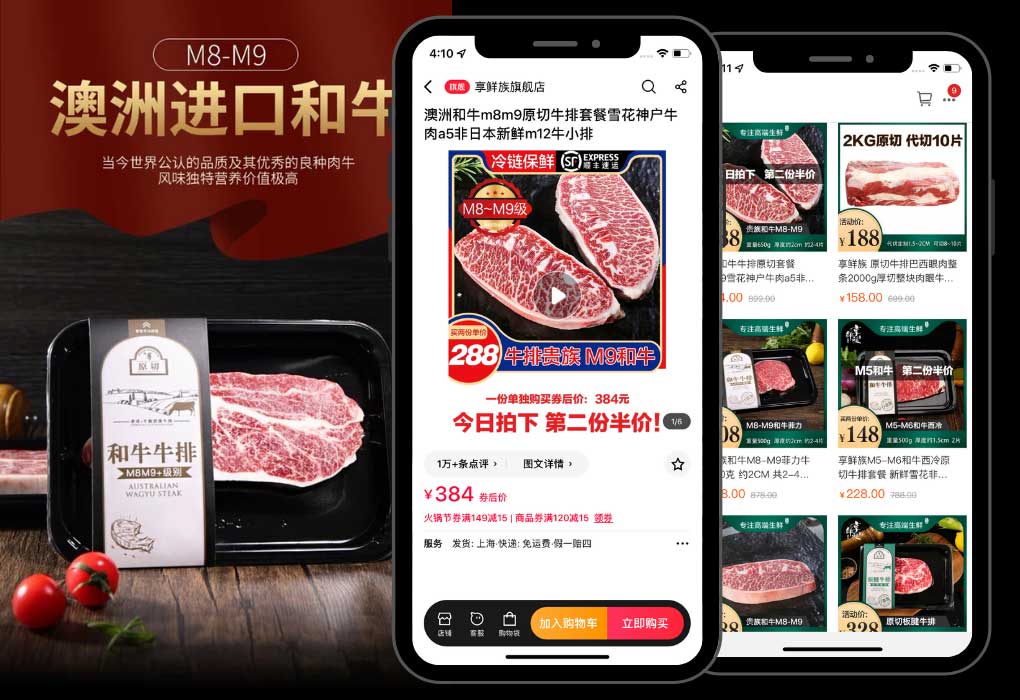
Collaborate With Influencers And KOLs For Brand Promotion
Working with influencers and key opinion leaders (KOLs) can be an effective way to build brand awareness and drive sales on Tmall for foreign brands. In China, KOL marketing campaigns often involve engaging consumers through remote or on-site interactions, such as live-streaming events or offline pop-up stores.
Successful collaborations can result in increased brand recognition and trust among Chinese consumers, leading to incremental sales growth.
For example, a beauty brand that collaborated with top-rated KOLs in the cosmetics industry saw a significant increase in visits and conversions on their Tmall store during Singles’ Day 2020.
The campaign involved interactive content creation by the KOLs showcasing the features of selected products from the brand’s range followed by giveaways for viewers via WeChat mini-programs linked directly from the livestream chatroom interface.
Success Stories And Best Practices
We want to share some insights on successful foreign brands on Tmall based on case studies. Here are some noteworthy examples:
- Nike: The brand opened its Tmall flagship store in 2012 and has since been able to reach a wider audience through the platform. Nike’s store features limited edition products exclusive to Tmall and ran successful marketing campaigns during Singles’ Day.
- Estée Lauder: The cosmetics brand launched its store in 2015 and made use of Tmall’s livestreaming feature to engage with customers. Estée Lauder’s “virtual makeup try-on” feature also helped customers try before they buy, leading to increased sales.
- Costco: The American retailer opened a Tmall specialty store in 2019, allowing Chinese consumers access to its popular Kirkland Signature line of products. Costco’s success on Tmall has led the company to expand its offerings on the platform.
- Swisse: The Australian health supplement company opened a Tmall flagship store in 2015 and has since gained a loyal following among Chinese consumers. Swisse utilized targeted advertising and promotions during key shopping events such as Singles’ Day.
These case studies highlight the importance of understanding your target market and leveraging Tmall’s features effectively for success on the platform.
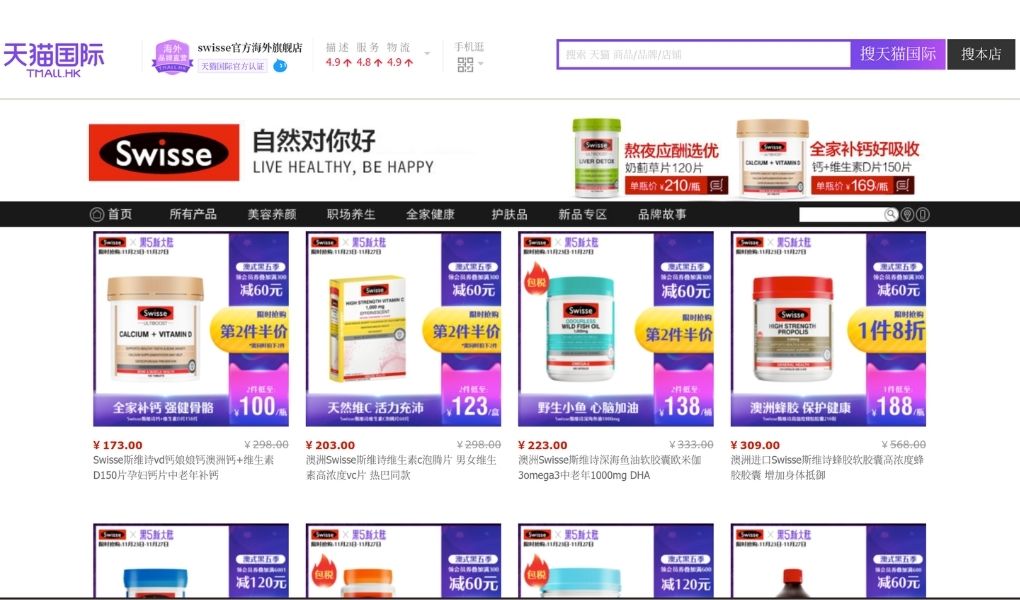
We are a Certified Tmall Partner!
Opening a Tmall store can be an excellent opportunity for foreign brands to enter the Chinese market and sell their products directly to consumers. With proper preparation, documentation, and understanding of the different store models available, anyone can set up a successful Tmall store that ultimately leads to brand awareness and increased sales.
The first step is conducting market research and competitive analysis to ensure that your products are suitable for the Chinese market.
You’ll also need to verify your eligibility criteria and prepare all necessary documentation for registration, including legal compliance with Chinese regulations and intellectual property protection. It can’t be done without a certified Tmall Partner, as these are the requirements of Alibaba Group.
A Tmall Partner (TP), also known as a Tmall Service Provider or Alimama is a certified agency that helps businesses manage their online stores on Tmall or Taobao. We are proud to announce that we are one of those partners, and we offer our Tmall services, which include:
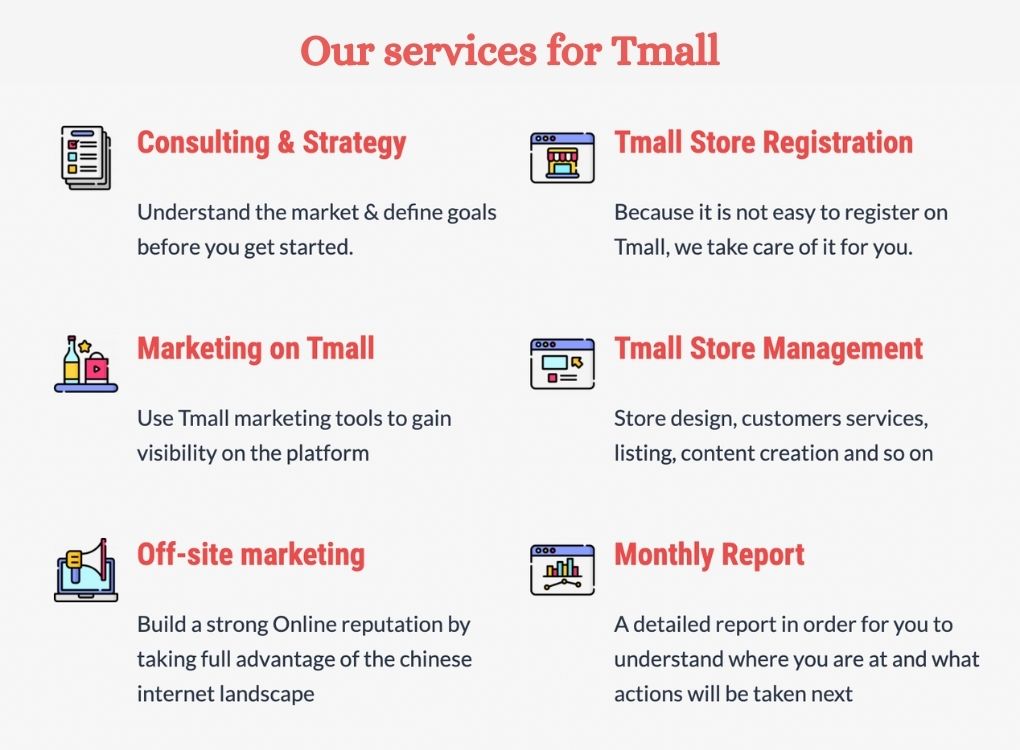
We can help you with the whole registration process and help you select the best Tmall store type for your needs and budget. After selecting one of the three types of Tmall stores (Flagship, Specialty or Franchise), you’ll move on to creating an Alibaba Group account, submitting an application to Tmall, completing the registration process, and obtaining approval.

Once approved, designing and customizing your Tmall store comes next before uploading product listings and implementing effective marketing strategies such as leveraging Tmall’s tools/campaigns & social media platforms promoting on forums like Zhihu.com or collaborating with influencers/KOLs.
We will take care of you every step of the way described above so that your stole is well-optimized and generates sales among Chinese consumers. Don’t hesitate to leave us a comment or contact us so that we can schedule a call with one of our Tmall experts. Let’s keep in touch!
